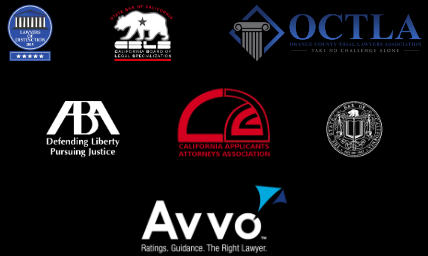Consider yourself at work, tasked with moving a stack of boxes. Your boss shoots you with a bow and arrow halfway through lifting one. He doesn’t, but the ache in your shoulder and neck leads you to believe he did.
Whether it’s a pulled muscle or a slipped disc, you’ll require medical assistance. This implies you’re about to embark on a journey through the workers’ compensation maze. Who are you going to call?
Some folks contact a workers’ compensation attorney initially. That’s always a good idea, unless when it isn’t. Allow us to clarify the differences and assist you in deciding whether to seek legal advice.
Signs you should hire a workers’ compensation attorney
Whether or not you should hire a lawyer depends on how your firm, or more significantly, its insurance provider, handles your case. Here are ten signs that you should hire a workers’ compensation lawyer.
Your employer or insurance provider denies it happened at work – When a minor injury occurs at work and is not reported, this is frequently the case. That injury worsens at work, gets more serious, and the employer/carrier claims the original injury didn’t happen at work. This can also happen when the long-term effects of workplace exposure result in an illness.
Your company takes a long time to respond to your claim – If you’re hurt on the job, you should contact your boss right away and begin the reporting procedure. The firm must supply you with the necessary papers, make a claim with its insurance carrier, and report your case to the state workers’ compensation board. The reporting standards and dates differ from state to state, but the procedure should take no more than 30 days to complete.
Becoming handicapped that interferes with your normal abilities – If you have a lifelong handicap, either partial or whole, that prevents you from returning to work, insurance companies are more likely to challenge your claim because it is the most expensive.
The insurance company refuses to pay you loss – When an injured worker’s recovery necessitates rehabilitation visits that an insurance company does not believe are necessary, your doctor may recommend therapy but the insurance company will not pay for it. If the insurance company dismisses your claim, and you appeal the decision – which you
should if you believe your claim is valid – things can get difficult, and you’ll need expert help.
If the settlement offer does not cover all lost wages and medical expenditures – Most worker compensation settlements are for permanent disability benefits, which are decided by an examining doctor’s rating system. If the insurance company disagrees with the rating, it can order an independent medical examination (IME) from a doctor of its choice. That doctor is likely to give you a lower rating than you (and your stiff neck) believe you deserve. A lawyer can assist you in persuading a judge that you are entitled to a higher grade.
You have a preexisting ailment – If you had neck difficulties before carrying that hefty box, the insurance company will almost certainly attribute your new pain to that. To show otherwise, you’ll need evidence.
You want to apply for Social Security disability benefits – SSDI benefits may be reduced by workers’ compensation benefits. A lawyer can help you organize your settlement such that the offset is minimized or eliminated.
If your employer retaliates against you – It may happen in a variety of ways such as by firing you, demoting you, reducing your hours, or pressuring you to return to work too soon, a lawyer might argue that the sanctions are unjustified.
If you have a third-party claim – If someone other than your employer contributed to your accident, you can pursue a workers’ compensation case outside of the workers’ compensation system. For example, if you are hit by a careless driver while driving for work, you can sue that person for damages.
Signs you shouldn’t hire a workers’ compensation attorney
Your injury is mild and doesn’t necessitate extensive medical treatment – the workers’ compensation system is built to manage cases like yours.
You don’t have a pre-existing condition that the accident intensified – Preexisting conditions, such as a neck injury from a car accident that is aggravated by a fall at work, can make your claim more difficult.
You miss little to no work – This kind of claim should be simple.
What a lawyer can do for you
Before a workers’ compensation judge hears your case, there will be court processes. If a settlement is reached, a lawyer will file the papers on time, construct your case, negotiate with the insurance company, and create a settlement agreement.
If it isn’t, you’ll have to go to court. It’s High Noon, and everything hinges on how persuasive your side can be. Not only will an attorney prepare your argument, but he or she will also prepare you to say the appropriate things in court. They’ll also question the insurance company’s witnesses. Amateurs should not be trusted with this task. Workers compensation law, unlike civil law, includes a safety net of sorts. The settlement is not final unless the judge
authorizes it when an employee represents himself or herself.
They have the option to reject the settlement if they believe it is not reasonable and the employee is being treated unfairly. A judge must, however, find the settlement to be egregiously unfair in order to reject it.
Hire Los Angeles workers comp attorney at the first hint of problems to prevent this situation. You’ve been hurt on the job before. You don’t want what comes next to be a pain in the neck.





